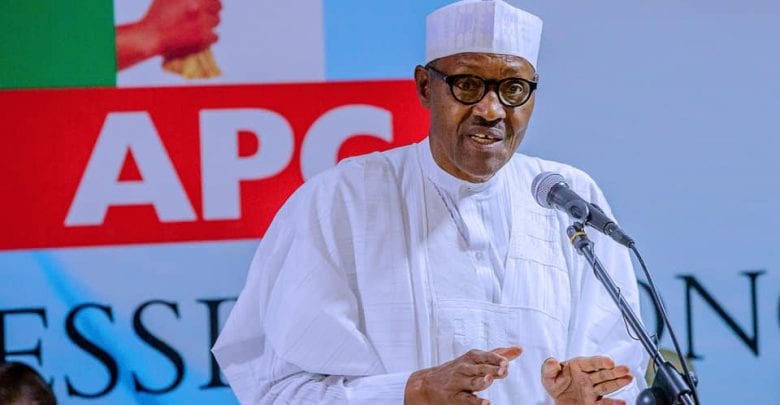
Nigeria’s President, Muhammadu Buhari has expressed serious concerns over the spread of the deadly COVID-19 virus worldwide.
Buhari, at a dinner, organized to celebrate the conclusion of the “Going for Growth 2.0″ roundtable at the Presidential Villa on Wednesday, revealed that the virus was responsible for the recent crash in crude oil prices. He stressed on the importance of making sure Nigeria is self-sufficient in the production of strategic goods.
Oil prices have dropped a staggering 46% since January 2020.
”They have also highlighted the fact that we need to continue to implement measures that would enable growth in other sectors of our economy and reduce our dependence on earnings from crude oil. For these objectives to be achieved, the vital role of the Nigerian private sector cannot be disputed or overemphasized.”
”I am delighted to note that we have made some progress in our diversification plans and in creating an enabling environment for the Nigerian private sector to thrive,” he said.
On the agricultural and manufacturing sectors, the president noted that his administration had ensured substantial improvements in the cultivation and processing of key staple commodities such as rice, maize, cotton and tomatoes.
According to the president, a key focus of his administration has been diversification of the Nigerian economy and improving Nigeria’s level of self-sufficiency in food production.
He expressed optimism that these measures would help support faster economic growth, create employment opportunities for the teeming youths, and reduce the nation ‘s import bill.
He maintained that the task of enabling greater growth and development of the Nigerian economy required joint collaboration between the public and the private sectors.
”This government remains steadfast in seeking to promote growth of the Nigerian economy, and by extension the growth of the Nigerian private sector.
”I am glad to note that following recent recession and supported by growth-enhancing fiscal and monetary policy measures, GDP growth has remained in positive territory for the past 11 quarters.
”The positive growth has been driven by growth in key sectors of our economy such as Agriculture, Industry, Oil and Gas, as well as ICT,” he said.
”Access to credit is often cited as a constraint to the growth of farmers and small and medium-sized businesses. Over the past 10 months, we have seen significant improvements in credit to support the continued growth of our economy.
”I am aware that lending rates by banks to farmers, small businesses and manufacturers have been lowered over the same period.
”These measures along with aggressive efforts at rebuilding our road, rail and power infrastructure, will help to reduce the cost of doing business in Nigeria and promote faster growth of our economy.
”Apart from the successes we have recorded, I admit that challenges do remain. Given our dependence on crude oil revenues for close to 60 per cent of government revenues, the recent decline in crude oil prices affects our ability to meet the infrastructure and human capital needs.”
The president, therefore, welcomed continued collaboration with the private sector.
